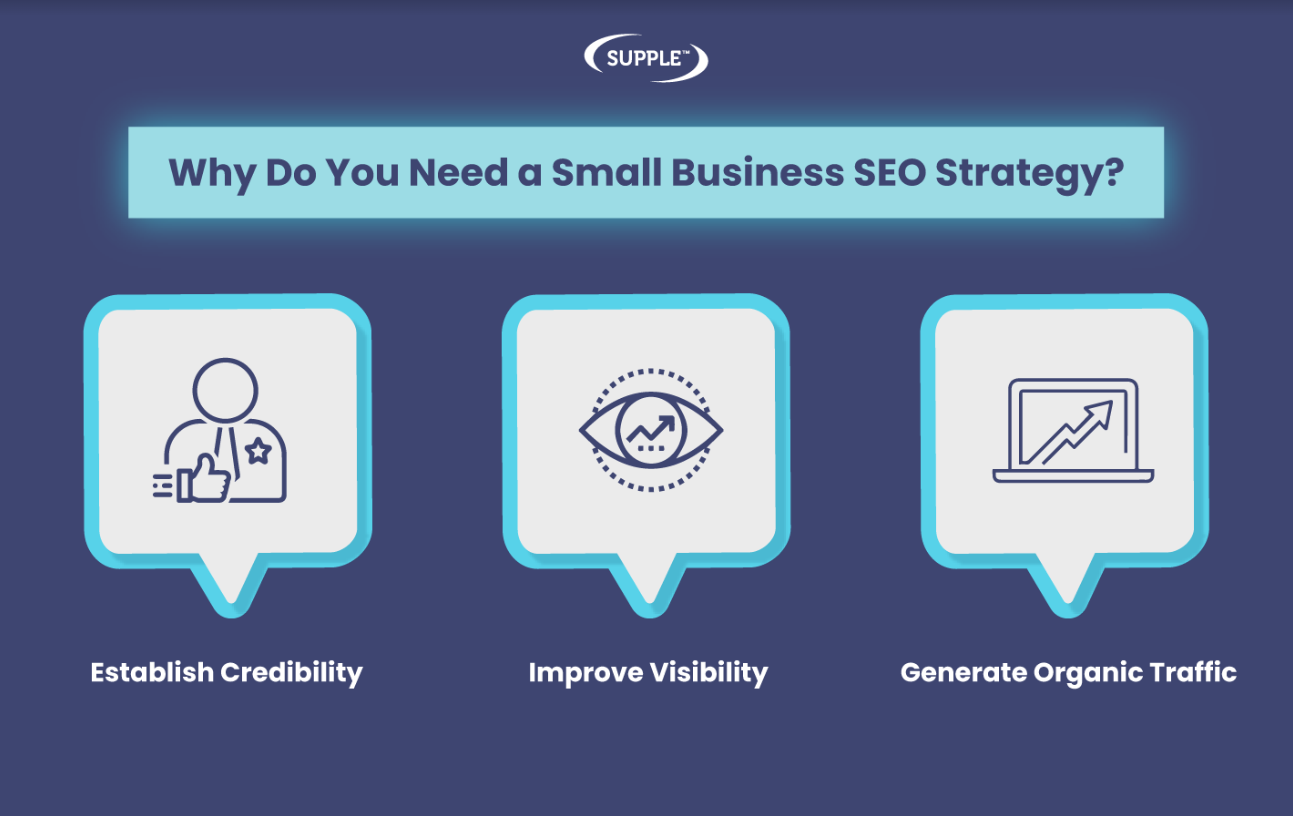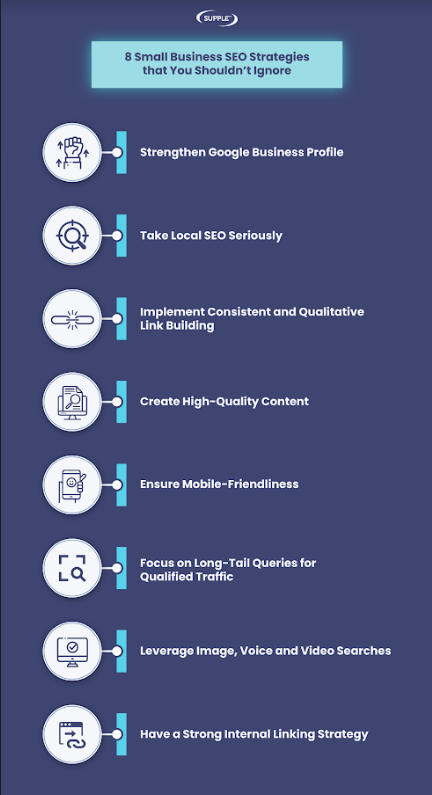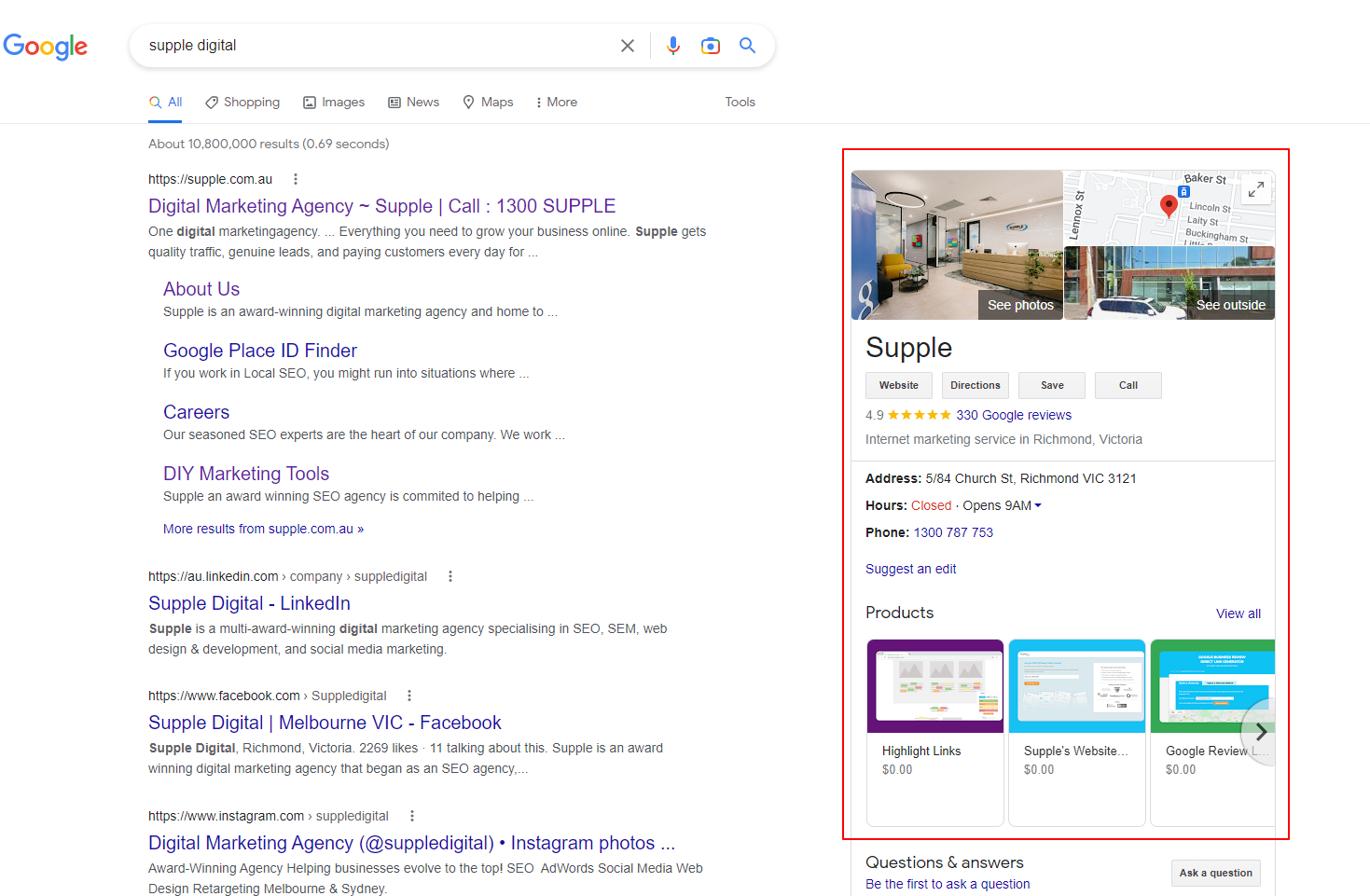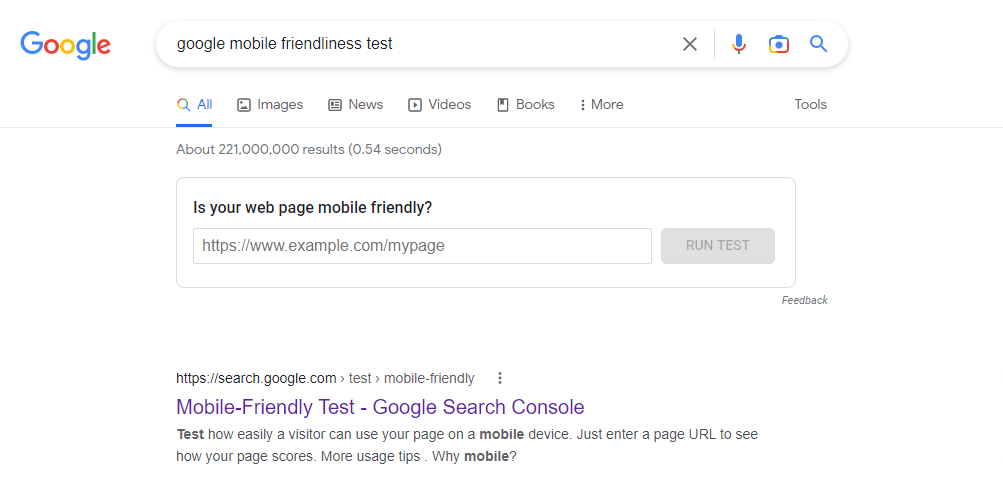9 Small Business SEO Strategies That You Can't Afford to Ignore
Setting up a small business is no small feat. But the real challenge starts once you do establish a small business successfully. You now need to bring in customers, generate revenue, and even create and implement growth plans.
However, today you can not even imagine growing your small business without having a strong online presence. Be it a small-scale Wix eCommerce store, or a local brick-and-mortar business, you need a steady influx of customers to thrive. But it is easier said than done — budget constraints, and lack of resources will constantly stand in the way.
Your solution to these challenges might lie in Search Engine Optimisation (SEO) — a strategy that will put your small business on the map, and reward you with organic growth when done right!
Ready to get started with your own small business SEO strategy? Let us start from the basics.
NOTE: you can also explore our guide on Social Media Marketing for Small Businesses, Keyword Strategy for SMEs and our look at the Best SEO Tools for Small Businesses to unlock more traffic to you business website.
Why Do You Need a Small Business SEO Strategy?
Let us start with why small businesses must invest in a robust SEO strategy. Small businesses have to work hard to secure a place on the map — even more so if it does not have adequate financial resources for expensive marketing channels.
This is where a powerful SEO strategy can change the game for small businesses.
Apart from the various minor advantages that SEO can reward small businesses, here are the primary benefits that you can look forward to getting:
Establish Credibility
A robust website. Seamless user experience. Consistently rising organic traffic.
Feels like a dream? It can easily be your reality if you work hard on establishing your credibility as a brand. And a proven way to do so is with the help of SEO. For digital properties, credibility is directly linked to their domain authority.
Higher your domain authority, the more likely you are to rank higher on the SERPs.
With the help of SEO — on-page and off-page, you can slowly but surely build your authority over time.
Improve Visibility
If you are not a stranger to the inner workings of search engines, you already know the value that the #1 organic result on the SERP holds.
After all, it enjoys a CTR of 39.6%. Powerful, right?
The result on #1 on the SERP, gets the maximum visibility and indicates to the searcher that they are most likely to get what they are looking for, by clicking on this result.
Small businesses struggle to break through the competition and make a mark on prospective customers. A well-defined small business SEO strategy helps businesses accomplish just this and get a shot at achieving the touted #1 position on the SERPs, or at the least make it to one of the prominent SERP features.
Generate Organic Traffic
If these benefits are not enough, you should keep in mind that SEO is the only way that can help you get and maximise your website’s organic traffic.
SEO helps your website secure a place in organic search. It is a critical component of a buyer’s funnel and can help you drive more engagement and conversions.
You may already be aware of the global dominance that Google possesses over the search engine market. However, if you follow the SEO guidelines prescribed by Google, you can achieve visibility across various other search engines too.
All of this put together means that, regardless of the search engine they choose, your prospective customers will be able to find you.
Now that you know about the various benefits of SEO for small businesses, we are sure you are ready to boost the growth of your small business. With that in mind, let us now talk about SEO strategy for small businesses that can implement and benefit from.
Small Business SEO Strategies that You Shouldn’t Ignore
With the definite advantage of being able to reach your target market organically and effectively, you need to prepare a robust SEO strategy that can help your small business with the process.
1. Strengthen Google Business Profile
We can not stress enough on the many benefits that having an updated Google Business Profile can offer. As an online business directory owned and operated by Google, it provides the most updated and accurate information about businesses to searchers.
After you kick off your business, Google will soon create an automated listing for it based on the information it collected through website crawl bots. However, you will need to claim the listing and update it with the most recent information along with completing the profile to make the most of it.
As a small business, you can not afford to lose a single customer due to a lack of information about your brand. Google Business Profiles ensure that does not happen.
Right from your operating hours, and website URL, to a dedicated section for customer reviews, you can create a comprehensive listing for your small business. Not to forget, you can add recent updates and information about any events or trending products on the listing.
Here’s an example:
But how does this help your SEO strategy, you wonder?
Well, the increased visibility of your business on the SERP and the dedicated position on the right detailing the primary details a searcher needs to know about your business can not be taken lightly.
According to a study, an average business can get over 59 actions from its Google Business Profile within a month. That is a lot of potential revenue for your small business.
2. Take Local SEO Seriously
As a small business, you should never take any kind of search engine visibility and online mention, for granted. This is especially true if you are a local business targeting clients within a specific geographic location. Local SEO can help you boost growth, and that is undeniable.
For starters, consider the fact that 93% of consumers used Google to find a local business in 2020.
There are several avenues that you can explore when you are looking to boost your local SEO performance. Registering your business on local directories and acquiring citations for it may be a good start.
Moreover, you can also narrow down your local SEO strategy by targeting keywords that portray a local intent. So if you run a laser clinic in Perth, using keywords such as “best laser hair removal perth ” in your content can help you get discovered faster.
What’s more, you should also run regular local SEO audits to ensure that your website is performing well.
3. Implement Consistent and Qualitative Link Building
As a small business owner, it is no surprise that you are constantly looking for ways to build authority, credibility and traffic for your website — and eventually your business. But doing so can become quite time-consuming, and we ideally want to minimise that timeline.
You need a well-defined strategy to start ranking fast and well on the search engine. Link building can help you with this. Over 58% of marketers consider backlinks to be a crucial factor in determining a website’s search engine rankings.
Backlinks from not just any website — but ones with high domain authority. Since such backlinks indicate to search engines that the information on your website is valuable, it can boost the online reputation of your small business.
If you have invested in creating high-quality blogs and webpages on your website, you can even acquire backlinks without your knowledge. This is the ideal scenario for a small business, however, be on the lookout for backlinks from questionable websites. Such backlinks can lower your hard-earned domain authority.
So you need a qualitative link-building strategy and follow it consistently over time to maintain and increase the authority and credibility of your website.
4. Create High-Quality Content
Regardless of which approach you take towards strengthening your SEO, creating high-quality content is always going to be a part of the process.
Content that is valuable and useful immediately translates to higher traffic. What’s more, you can boost your content marketing strategy and end up forging strong relationships with potential customers.
You will need to gain deeper insights into the preferences and needs of your target audience to be able to create relevant and useful content. Once you have created content, run regular audits to ensure that these pages are optimised for SEO.
This marriage of content marketing and SEO is one of the most cost-effective and proven ways for small businesses to maximise their online performance and presence.
5. Ensure Mobile-Friendliness
The next strategy that you need to keep in mind for boosting the SEO of your small business is ensuring the mobile-friendliness of your website.
For context, consider the fact that nearly 60% of the internet usage worldwide takes place on mobile devices. Now, if you are wondering whether mobile-friendliness is another ranking factor — the brief answer is yes.
Google has always given a lot of importance to the kind of user experience that a website is able to offer its visitors. Mobile-friendliness today forms a huge part of it considering most users today use mobile devices to browse the internet on the go.
Websites need to optimise their websites so that users have a consistent and seamless experience across desktop and mobile devices. Checking for mobile friendliness of your webpage is as easy as searching for your favorite recipe online.
Type in “Google Mobile Friendliness Test” on Google, and you will see something like this:
Alternatively, you can also click on the Google Search Console link that you see in the image above, and run the check.
Remember, webpages can still rank with the help of content even if they are not totally mobile-friendly. However, a mobile-friendly website makes it easier for small businesses to navigate the competition on the SERPs.
6. Focus on Long-Tail Queries for Qualified Traffic
Read up anything on the ideal keyword research strategy for your small business, and long-tail keywords will almost inevitably make an appearance. And rightly so.
Gone are the days when you could stuff your 500-word write-up with a bunch of keywords to rank on search engines. Today, your website might get penalised for attempting something like this.
While short-tail keywords help you address broader topics and create educational content, long-tail queries help you target specific search intent more easily. Plus, search engines assign more importance to long-tail keywords due to their ability to demonstrate the search intent more clearly.
For example, if you have a small plumbing business based in Melbourne, you can benefit by using a keyword such as “best plumbing services in melbourne” more than you would by using a keyword like “top plumbing services”.
This is not to indicate that the latter should not be included in your content, but you are more likely to generate qualified leads and traffic using the long tail keyword.
7. Leverage Image, Voice and Video Searches
With the advent of smartphones and speakers, the conventional way of conducting searches and conducting tasks online is changing. A lot of us now depend on our Google Echo or Amazon Alexa devices to facilitate our daily chores. After all, these AI assistants can now take care of everything from setting reminders to your mood.
As of 2019, over a quarter of the global online population uses voice search on their mobile devices. But most businesses — small and large are yet to leverage it to their advantage. As a small business, if you proactively optimise for voice searches, you can be ahead of your pre-established and stronger competitors.
Similarly, optimising the images on your website with the help of image SEO. Taking simple steps such as defining alt-text for your images, optimising the image file name, defining the right image format, and making them mobile-friendly can go a long way.
In a study conducted by the Content Marketing Institute in 2020, 71% of marketers are using video marketing as a tool for their business. Due to their high ROI, and people preferring videos to learn about products and services, videos are quite popular among individuals and businesses alike.
As a small business, you must experiment with different kinds of content distribution formats and channels, and video content should definitely be on top of it. Plus, the ease of distributing and repurposing videos on social media and other platforms makes them a great investment.
8. Have a Strong Internal Linking Strategy
As a small business owner, you should focus on ensuring that visitors stay engaged on your website for as long as possible. This is not possible by simply taking them to one web page and letting them navigate the journey on their own.
Instead, you need a strong internal linking strategy.
Consider your website as a web, wherein your internal links are the connecting nodes. A break in that you will find a definite gap in the web. In the context of a website, this could translate into your customer abandoning your website.
A strong internal linking strategy will redirect visitors to other pages on your website. The longer they spend on your website, the better it is for your SEO performance.
Metrics such as average time on a website, dwell time, and bounce rate, are considered crucial signals for getting your website to rank. Internal links can not only help you get your website more organised but also help Google crawlers to navigate your website and establish relationships within the web pages more easily.`
9. Set up Google Search Console and Google Analytics
While you optimise your site and attract the traffic, you’d also need to gain insights into the traffic and track progress.
For this you need two important Google tools:
10. Getting Listed on Relevant Directories
Potential customers, clients or business partners want to know that they can trust your business. One way to garner more trust and improve your public perception is to get listed on the relevant directories.
If you’re not sure where to start, look up key competitors and check where they are listed. An SEO agency will also be able to do their research, then recommend the most important directories for your specific industry or niche.
Because most directory sites link visitors directly to your website, this naturally leads to more traffic, clicks, and conversions. This approach also adds an element of authenticity to your website, especially if the directory is a trusted entity itself.
11. Accumulate Reviews and Respond
When users look you up online, reviews often form their initial impression of the business. Even if you have a well-designed website with great content, a lack of reviews could drive customers away. Even Google itself recommends that small businesses prioritise this aspect.
In general, there are two key aspects to consider here. First, you’ll need to accumulate a steady flow of reviews from previous clients and customers. The second step , which can be easy to overlook, is actually responding to these reviews.
What does this look like in real terms? One of the most simple ways to implement this strategy is creating a Business Profile, which appears next to your business name whenever a user searches for you online.
There are also many ways to gather reviews, including everything from face-to-face interactions to QR codes, emails, receipts, and various other methods.
Difference Between SEO and Small Business SEO
Small business SEO differs from enterprise SEO (or regular SEO) in many ways. However, we’ve outlined some key differences that you should know.
They are:
- Different target locations: The main difference between SEO and SMB SEO is the search results they target. An enterprise SEO doesn’t focus on optimising for a specific geographical location. On the other hand, SMB SEO is more focused on the location of their physical presence simply because they are targeting a local audience.
- Strategies: Since enterprises target a wider audience, their content addresses customers on a bigger level — say nationally or globally. Moreover, their content production scale is also very high.
Whereas, for small businesses, you need to create locally relevant content. Additionally, you’d build links and manage reputation on a local level. - Tools: SEO tools like Ahrefs, Moz, BrightLocal, etc. cater to enterprises as well as small businesses. On the other hand, there are tools such as Google Search Console, SEO Clarity, and BrightEdge that are specifically meant for enterprise SEO.
That said, let’s see how small business SEO works.
Mistakes to Avoid When Creating an SEO strategy for your Small Business
A popular superhero once said — with great power, comes great responsibility.
Now that you know all there is to know about creating effective SEO strategies and implementing them, you must ensure that you do it diligently. Since, mistakes can cost your small business, quite a bit of money and time, here are a few that you should steer clear of:
Having SEO as an Afterthought
Many businesses feel that the core business functions should have all the attention and resources and that SEO can come later. Big mistake!
If you have designed a great website for your business, and are powering through towards achieving growth, SEO should be in the picture from the get-go. As a matter of fact, your website can benefit from integrating SEO in the design process, so that search engines can crawl and index your website without any issues.
In case your website already exists, and you are waiting for the right time to initiate an SEO strategy, now is the time. Companies are already establishing dominance over SERPs by implementing SEO efforts, so if you want to get ahead of the competition, it is good to start developing an SEO strategy right away.
Having unclear end-goals
While it is important to start putting in SEO efforts, regardless of the level you operate at, it is important to establish clear goals before embarking on the journey. Otherwise, you might end up diverting resources to areas that do not need that much attention, to begin with.
Considering this, set up your end goals and make a list of things that you want to accomplish through your SEO strategy. Once this is done, you can confidently start optimising your content and your website in that direction.
Being impatient with the results
When compared to other modes of marketing such as PPC advertising, or offline marketing, SEO is a long-term process. But if you tailor your SEO strategy right, you will achieve results albeit a few months down the road.
Many businesses make the mistake of investing in SEO, constantly tracking if they are getting results, and then abandoning their efforts after a few weeks of non-performance. Remember that your SEO efforts are just the beginning.
Allow some time for search engines to crawl, index and rank your website. Allow users to discover your business, and take action. More importantly, allow for the strategy to display its capabilities, considering the fact that the results will have a larger impact on your online performance than any other medium or marketing channel.
Neglecting Local SEO
Sure, you dreamt of taking your business global when you set up your small business. But as they say, Rome was not built in a day.
Similarly, creating a global presence takes time, and more often than not, starts locally. This means that there is really no excuse to ignore your Local SEO just because your end-goal is bigger. By ignoring local SEO, you will be losing out on potential local customers who could act as milestones on your journey to going global.
Even the largest corporations around the world, have had to focus on localization and local SEO to achieve the magnitude of success they did or to sustain it for a longer period of time. For instance, Apple is coming up with its version of a business directory similar to Google Business Profile, and it is called — Apple Business Register.
When Snapchat launched in India, the company launched a local AR-creator community, created local content, and used localized strategies to try and be successful. When you are a small business, you have a bit of room to try new strategies which can easily happen when you are targeting customers through local SEO. So, you should gear up and have defined strategies for various platforms and local directories
Boost Your Small Business Revenue with SEO
You now have a better understanding of the many small business SEO strategies that you can implement for yours. Small businesses are often limited by fewer resources and skills required to put them on the trajectory for growth.
But SEO is a strategy that can help you overcome this limitation and boost your revenue organically.
Plus, if you need an expert in SEO strategies for small businesses to help you out, feel free to get in touch. We would be happy to have a chat about your goals.
DIGITAL MARKETING FOR ALL OF AUSTRALIA
- SEO AgencyMelbourne
- SEO AgencySydney
- SEO AgencyBrisbane
- SEO AgencyAdelaide
- SEO AgencyPerth
- SEO AgencyCanberra
- SEO AgencyHobart
- SEO AgencyDarwin
- SEO AgencyGold Coast
- We work with all businesses across Australia






